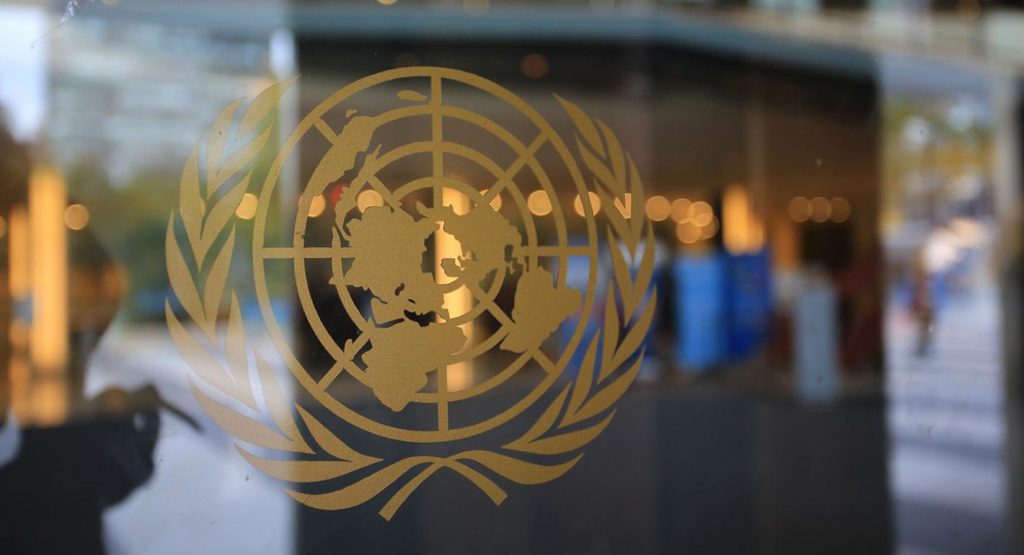As the world becomes increasingly digitized, cybersecurity has emerged as one of the most pressing issues of our time. Today, global leaders are sounding the alarm on the growing threats to cyberspace. At the United Nations General Assembly in New York, cybersecurity took center stage, with warnings about the rise of sophisticated cyberattacks, the need for stronger regulations, and the implications for national security and global stability.
A Surge in Cyber Threats
In recent years, cyberattacks have escalated in both frequency and complexity. From ransomware attacks on critical infrastructure to data breaches affecting millions of users, the stakes have never been higher. Countries like the United States, the European Union, and China are increasingly concerned about the ability of bad actors—whether state-sponsored, or criminal organizations—to disrupt economies, steal sensitive information, and even undermine democratic processes.
During the U.N. session, several member states raised concerns about the increasing vulnerabilities in cyberspace. As nations become more dependent on technology, including in sectors such as healthcare, finance, and defense, the risks associated with cyberattacks have grown exponentially. This year alone has seen significant breaches targeting everything from government agencies to large corporations, with many attacks attributed to highly organized hacker groups.
Cybersecurity and National Security
Cybersecurity is no longer just a technical issue; it has become a matter of national security. Governments are recognizing that cyberattacks can cripple essential services and even have deadly consequences if critical infrastructure—such as power grids, or water systems—are targeted. Recent high-profile attacks on U.S. hospitals and pipelines have demonstrated how vulnerable vital systems can be (mint).
Moreover, cyber warfare between nations is becoming a common tactic. Countries like Russia, China, and North Korea have been implicated in orchestrating cyberattacks on foreign governments and institutions. These cyber operations can have serious geopolitical implications, leading to strained diplomatic relations and increased tensions between world powers.
Calls for Stronger Cyber Regulations
One of the key outcomes of the United Nation’s discussions is the call for stronger international cooperation and regulations to combat cybercrime. Several global leaders, including those from the European Union and the United States, emphasized the need for countries to establish clear rules and frameworks that govern cyberspace. This includes improving cybersecurity protocols, sharing intelligence on cyber threats, and holding perpetrators accountable.
There’s a growing consensus that the current state of cybersecurity is insufficient to meet the rapidly evolving challenges posed by cybercriminals and state-sponsored hackers. Many experts believe that a more collaborative approach is essential to prevent further cyber incidents. The international community is being urged to establish norms and agreements that define acceptable behavior in cyberspace and outline consequences for those who violate these standards.
Emerging Technologies and New Risks
Complicating matters further, the rise of emerging technologies such as artificial intelligence (AI), quantum computing, and the Internet of Things (IoT) has introduced new risks. AI, in particular, can be a double-edged sword—while it offers significant advancements in cybersecurity, it also presents opportunities for cybercriminals to exploit vulnerabilities.
Similarly, the increasing connectivity of IoT devices has expanded the attack surface for hackers, as millions of new endpoints—ranging from smart home devices to industrial control systems—are now potential targets. Experts at the U.N. have stressed the importance of securing these technologies to prevent future cyberattacks on an even larger scale.
Looking Forward: What’s Next for Cybersecurity?
The global consensus is clear: cybersecurity must be a top priority for all nations. While some progress has been made, much work remains to be done in building a more secure digital ecosystem. Governments, private companies, and international organizations must work together to create a unified response to the growing cyber threat. This includes improving cybersecurity infrastructure, educating the public on digital safety, and developing new tools to detect and respond to cyber incidents.
As the world becomes more interconnected, the consequences of a major cyberattack could be devastating. By addressing these challenges head-on and fostering greater collaboration between nations, the global community can build a more resilient and secure cyberspace for all.
The discussions at the U.N. General Assembly are a critical reminder of the ever-present danger posed by cyber threats. Nations must act swiftly and decisively to protect their digital infrastructure and ensure a safer future in an increasingly digital world.






